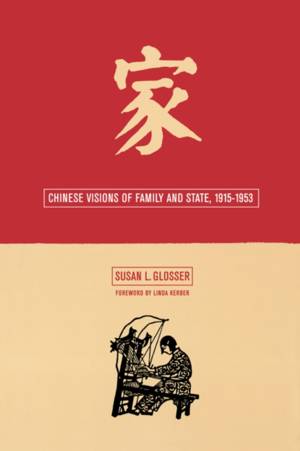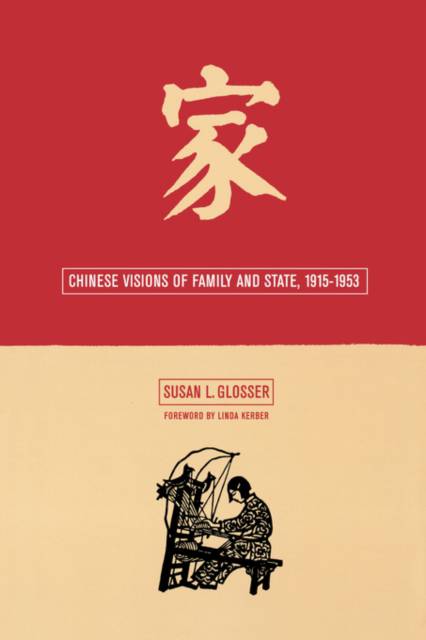
Bedankt voor het vertrouwen het afgelopen jaar! Om jou te bedanken bieden we GRATIS verzending (in België) aan op alles gedurende de hele maand januari.
- Afhalen na 1 uur in een winkel met voorraad
- In januari gratis thuislevering in België
- Ruim aanbod met 7 miljoen producten
Bedankt voor het vertrouwen het afgelopen jaar! Om jou te bedanken bieden we GRATIS verzending (in België) aan op alles gedurende de hele maand januari.
- Afhalen na 1 uur in een winkel met voorraad
- In januari gratis thuislevering in België
- Ruim aanbod met 7 miljoen producten
Zoeken
Omschrijving
At the dawn of the twentieth century, China's sovereignty was fragile at best. In the face of international pressure and domestic upheaval, young urban radicals--desperate for reforms that would save their nation--clamored for change, championing Western-inspired family reform and promoting free marriage choice and economic and emotional independence. But what came to be known as the New Culture Movement had the unwitting effect of fostering totalitarianism. In this wide-reaching, engrossing book, Susan Glosser examines how the link between family order and national salvation affected state-building and explores its lasting consequences.
Glosser effectively argues that the replacement of the authoritarian, patriarchal, extended family structure with an egalitarian, conjugal family was a way for the nation to preserve crucial elements of its traditional culture. Her comprehensive research shows that in the end, family reform paved the way for the Chinese Communist Party to establish a deeply intrusive state that undermined the legitimacy of individual rights.
Glosser effectively argues that the replacement of the authoritarian, patriarchal, extended family structure with an egalitarian, conjugal family was a way for the nation to preserve crucial elements of its traditional culture. Her comprehensive research shows that in the end, family reform paved the way for the Chinese Communist Party to establish a deeply intrusive state that undermined the legitimacy of individual rights.
Specificaties
Betrokkenen
- Auteur(s):
- Uitgeverij:
Inhoud
- Aantal bladzijden:
- 298
- Taal:
- Engels
- Reeks:
- Reeksnummer:
- nr. 5
Eigenschappen
- Productcode (EAN):
- 9780520227293
- Verschijningsdatum:
- 12/02/2003
- Uitvoering:
- Hardcover
- Formaat:
- Genaaid
- Afmetingen:
- 164 mm x 241 mm
- Gewicht:
- 576 g

Alleen bij Standaard Boekhandel
+ 213 punten op je klantenkaart van Standaard Boekhandel
Beoordelingen
We publiceren alleen reviews die voldoen aan de voorwaarden voor reviews. Bekijk onze voorwaarden voor reviews.









